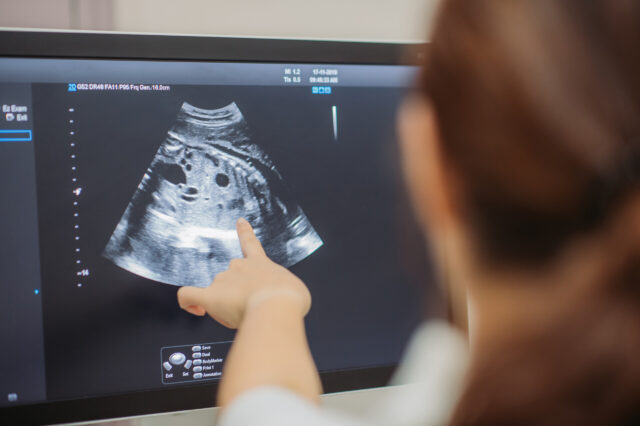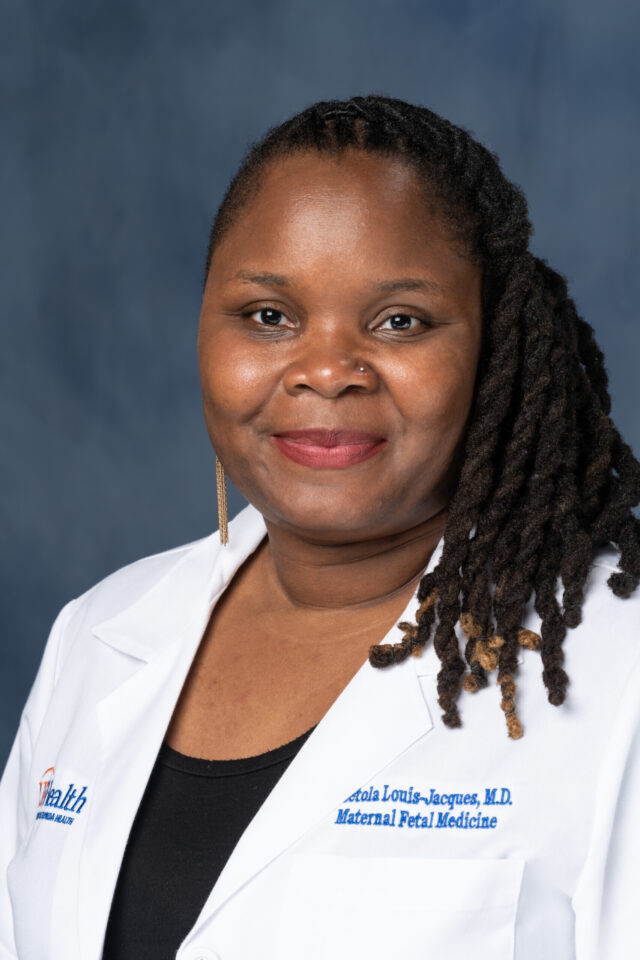UF Health project seeks to help mothers in need

A doctor points to an expectant mother's sonogram. (Getty Images)
University of Florida Health has launched an ambitious project to minimize the health risk of pregnancy by identifying, addressing and tracking social determinants of health that can threaten a mother and baby’s health.
The project will create a patient electronic dashboard that could flag social needs early in pregnancy to prevent the health-threatening stress they pose. Those social determinants include housing and food insecurity, transportation, stress and financial strain.
The aim is to match mothers in need with the appropriate health system and community resources to address these stressors, said project leader Adetola F. Louis-Jacques, M.D., an assistant professor in the UF College of Medicine’s department of obstetrics and gynecology.
“It is an integral part of care to have a full sense of a person and their needs,” said Louis-Jacques, a faculty member of the UF Health Maternal-Fetal Medicine program. “This is an opportunity to respectfully engage the community to find solutions. That can be a powerful thing.”
Pregnancy-related deaths continue to fall worldwide even as they climb in the United States. The Centers for Disease Control and Prevention reports that the U.S. maternal mortality rate was 32.9 deaths for every 100,000 live births in 2021, up from 9.8 per 100,000 in 2000. Some groups are hit harder, with Black women 2.6 times more likely to die during pregnancy than white women, the CDC says.
Higher stress levels are associated with preeclampsia, perinatal depression and anxiety disorders, preterm birth, and low birth weight.
The project is funded by the UF College of Medicine’s quality and patient safety initiative through the Rapid AI Prototyping and Development for Patient Safety, or RAPiDS, program. The projects funded are intended to jumpstart AI solutions for quality improvement challenges.
Deepthi Varma, Ph.D., and John Smulian, M.D., M.P.H., are co-investigators with Louis-Jacques, who supervises all aspects of the project. Smulian is a professor and chair of the UF College of Medicine’s department of obstetrics and gynecology.
Varma is an assistant professor in the UF College of Public Health and Health Professions’ and UF College of Medicine’s department of epidemiology.
Expectant mothers are already filling out questionnaires about their potential social needs when nurses contact them for their prenatal registration. This project will use AI to analyze that information and other data to assess social risk factors that could affect the health of mothers and babies.
If a mother, for example, has food insecurity or transportation issues getting to an appointment, a doctor can refer them to a social worker or UF Health perinatal social needs navigator, a new position. The navigator, in turn, works with community organizations that can assist. Community health workers will also be hired, with financial support from Alachua County, to provide outreach to patients and follow-up, ensuring needs are addressed.
Rulman L. Pebe, a clinical and geospatial data analyst in the UF College of Medicine’s quality and patient safety initiative and a project team member, said the team is energized to enhance patients’ health. “And I think that’s what drives everyone on this project,” he said.
Project leaders said the initiative greatly benefited from its partnership with UF Health information technology and its expertise with a database crucial to the project.
A key is community engagement, Louis-Jacques said. One project goal, for example, is to host community listening sessions in areas of high social need and poor pregnancy outcomes. The sessions will lead to a better understanding of families' experiences and proposed solutions.
“I think addressing social determinants of health is going to become an expectation within medicine,” she said. “It will ensure that patients are screened and that there are systems in place to address these needs and ensure there is actual change. We’re doing it in a respectful, dignified manner.”
About the author

